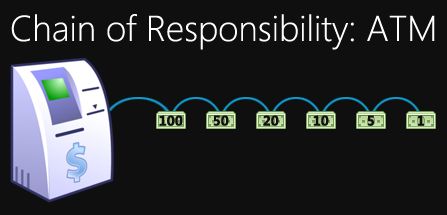- 如何在GitHub上Clone项目:一步步指南
Fanstay985
github
GitHub作为全球最大的代码托管平台,汇聚了无数开发者的智慧结晶。对于初学者和资深开发者来说,学会如何从GitHub上克隆(Clone)项目是一项基本且重要的技能。本文将详细介绍如何在GitHub上克隆项目的步骤,帮助你轻松将他人的代码库下载到本地进行学习和开发。一、准备工作在开始之前,请确保你已经安装了Git。Git是一个分布式版本控制系统,用于代码的版本管理。如果你还没有安装Git,可以从G
- Schneider MDI1PRD23B7-EQ程序参数使用教程MDI1FRD34C7-EQ-N技术
广州葵璟
机器学习人工智能
SchneiderMDI1PRD23B7-EQ,MDI1FRD34C7-EQ-N步进电机。这是一款包括电机+控制器+驱动器集成一起的微步进电机,所以这是为什么需要设置程序参数的重要原因。在更换维修电机之前,先要将原MDI1PRD23B7-EQ,MDI1FRD34C7-EQ-N电机的程序参数进行备份。这里需要用到原厂配套的通讯线MD-CC400-001(如果没有可以自行准备)。下面是MDI1PRD2
- 【step by step】Easyi3C Host I3C/I2C adapter (8)
Scott.W
嵌入式硬件python功能测试
Easyi3C是一家领先的嵌入式系统工具供应商,可简化各种通信协议的开发和调试。公司提供一系列产品,旨在帮助工程师和开发人员更高效地使用I3C/I2C、USB和MIPI、JEDEC、MCTP等协议。Easyi3C提供PythonAPI。用户可以使用Python脚本对Easyi3C进行编程和控制,通过I2C或I3C协议访问从设备。API的使用,适合用户搭建更加复杂的测试环境,对提高自动化测试程度会有
- 信息收集之 子域名收集,子域名爆破_dnsdumpster
2401_89829398
网络
「作者主页」:士别三日wyx「作者简介」:CSDNtop100、阿里云博客专家、华为云享专家、网络安全领域优质创作者「专栏简介」:此文章已录入专栏《网络安全快速入门》子域名收集一、域名爆破原理二、搜索引擎收集子域名三、第三方网站收集子域名1.VirusTotal2.DNSdumpster四、工具收集子域名子域名就是下一级域名的意思,比如map.baidu.com和image.baidu.com就是
- 探索大模型应用:构建基于检索的RAG实战指南
李逍遥猿
人工智能计算机视觉microsoftAIGC开源深度学习神经网络
在AI技术的浪潮中,大模型以其强大的问题回答能力,正逐渐渗透到各行各业,成为推动行业发展的新引擎。然而,大模型并非万能,它在实时性和私有领域知识覆盖上存在局限。为了克服这些限制,本文将带你深入了解如何利用检索增强生成模型(RAG)来扩展大模型的能力,并通过一个实战案例,展示如何构建一个基于RAG的AI知识库。一、大模型的局限与RAG的机遇大模型虽然在处理通用问题上表现出色,但在面对实时数据和私有领
- kotlin中的模块化结构组件
每次的天空
kotlinandroid开发语言
模块化结构组件包含ViewModel、LiveData、Room和Navigation,我将讲解它们的工作原理和基础使用。ViewModel工作原理创建与存储机制:当调用ViewModelProvider的get方法获取ViewModel实例时,ViewModelProvider会先检查ViewModelStore中是否已存在该类型的实例。若存在则直接返回,若不存在则使用ViewModelProv
- 面试中必会的Java基础(一)
每次的天空
面试java学习
Java是面向对象编程所以第一就是面向对象编程的特点是什么?面向对象编程类与对象:掌握类的定义、成员变量和成员方法的声明与使用,以及如何通过类创建对象。理解对象的生命周期,包括创建、使用和销毁。封装:明白封装的概念,即把数据和操作数据的方法封装在一个类中,通过访问修饰符(public、private、protected等)来控制对类成员的访问。继承:理解继承的概念和作用,掌握通过extends关键
- MVC/MVP/MVVM框架学习总结(二)
每次的天空
mvc学习java
上次已经了解到MVC的知识,现在是扩展实现MVP/MVVM的框架改进本身项目MVVM框架即Model-View-ViewModel框架,是一种软件架构设计模式,以下是具体介绍:核心组件Model(模型):代表应用程序的数据结构和业务逻辑,负责数据的存储、检索、验证和处理,定义业务规则和算法,是应用程序的数据核心。比如在一个电商应用中,商品数据、用户订单数据等的存储和相关逻辑处理都属于Model层。
- CURL一文通
calmtho
curl网络
文章目录1.什么是curl2.curl可以发送什么请求3.常见curl发http相关请求怎么写4.curl带上的参数分别有什么,可以怎么用5.进阶用法6.常见错误以及学习指导建议1.什么是curl是利用URL语法在命令行下工作的开源文件传输工具。尤其被广泛应用的在linux系统下。2.curl可以发送什么请求由定义可知道,curl主要应用于网络传输,它支持常用的多种请求,如http,https,f
- Python学习第十九天
Leo来编程
Python学习学习python
Django-分页后端分页Django提供了Paginator类来实现后端分页。Paginator类可以将一个查询集(QuerySet)分成多个页面,每个页面包含指定数量的对象。fromdjango.shortcutsimportrender,redirect,get_object_or_404from.modelsimportUserfrom.formsimportUserFormfromdja
- 开源模型应用落地-Qwen2-VL-7B-Instruct-vLLM-OpenAI API Client调用
开源技术探险家
开源大语言模型-新手试炼深度学习AI编程AIGC
一、前言学习Qwen2-VL,为我们打开了一扇通往先进人工智能技术的大门。让我们能够深入了解当今最前沿的视觉语言模型的工作原理和强大能力。这不仅拓宽了我们的知识视野,更让我们站在科技发展的潮头,紧跟时代的步伐。Qwen2-VL具有卓越的图像和视频理解能力,以及多语言支持等特性。学习它可以提升我们处理复杂视觉信息的能力,无论是在学术研究中分析图像数据、解读视频内容,还是在实际工作中进行文档处理、解决
- kotlin中的行为组件
每次的天空
kotlin开发语言android
在Android开发领域,Jetpack已经成为现代化应用开发的标配。除了界面组件外,其提供的行为组件(BehaviorComponents)更是解决了众多开发痛点。本文将深入解析WorkManager、DataBinding、Coroutines和Lifecycle四大核心组件的工作原理,并结合实战代码展示它们的具体用法。首先要添加jetpack相关的依赖库,操作如下:android{...da
- 探秘C# .NET Core Health Checks:从零打造全方位应用健康监测系统——实战代码解析与深度注释
墨瑾轩
一起学学C#【一】c#.netcore开发语言
在C#中,.NETCoreHealthChecks提供了一种标准化的方式来监控应用程序及其依赖项的运行状态。这种健康检查机制允许开发人员轻松地集成各种自定义检查,确保系统的健康状况,并通过HTTP接口对外暴露检查结果,便于监控工具或服务发现组件进行自动化监控。以下我们将详细阐述如何在.NETCore中实现健康检查,并附带代码示例及详尽注释。1.安装HealthChecksNuGet包首先,需要在项
- 【Repos系列】Bandersnatch同步原理
yunqi1215
Basic网络
Bandersnatch是PyPI(PythonPackageIndex)的官方镜像工具,旨在高效同步和维护PyPI的完整本地副本。其核心原理围绕元数据抓取、增量同步、文件校验和并发下载,以下为详细工作流程:1.元数据抓取与包列表生成PyPI接口:Bandersnatch通过PyPI的JSONAPI(如https://pypi.org/pypi/{package}/json)获取所有包的元数据。主
- 【时间复杂度常见的计算】
xihongshi547
算法leetcode数据结构
提示:文章写完后,目录可以自动生成,如何生成可参考右边的帮助文档时间复杂度的简单介绍前言一、时间复杂度是什么?二、时间复杂度的计算1.基本步骤2.常见的时间复杂度总结前言对于判断一段代码的好坏,取决于该代码运行的时间与占用的空间,也就是时间复杂度与空间复杂度,本章就先讲一下时间复杂度,主要包含常见的时间复杂度的计算。一、时间复杂度是什么?时间复杂度是衡量算法运行效率的一个重要指标,它表示随着输入规
- Python入门到精通(三):数据结构第一部分
love9599
Python入门到精通python开发语言
python的常用数据结构类型字符型字典列表元组、集合一、序列序列:是python中的一类数据类型,比如字符串、列表序列类型的对象是可以进行循环变例的1.1序列特性索引:指的是在序列中找到指定元素的索引编号切片:指的是从序列中提取一部分内容加法:序列对象可以将多个序列合并成一个乘法:可以将序列通过乘法输出多个相同的1.2序列操作索引操作格式:序列名[索引值]#案例1:str1="hello"#定义
- 网安工具系列:雷池waf社区版安装、配置使用
坦笑&&life
网络安全安全网络安全
雷池waf社区版安装以及相关问题解决一.雷池waf社区版安装什么是WAFWAF部署架构雷池waf的网站地址雷池的github地址官网是文档地址,中文文档,不会就去翻翻。waf的离线安装安装雷池配置需求可以逐行执行以下命令来确认服务器配置有三种安装方式供选择离线安装二.雷池waf社区版-配置使用(2)1防护站点-http域名的添加2防护站点-https域名证书的添加1证书的上传3测试防护效果参考官网
- Spring Boot Security 实战指南:从零开始构建安全可靠的应用
无眠_
springboot数据库网络
SpringBootSecurity实战指南:从零开始构建安全可靠的应用摘要:网络安全至关重要,SpringBootSecurity提供了强大的安全框架,帮助我们轻松构建安全可靠的应用。本文将从零开始,手把手教你如何在SpringBoot应用中集成SpringSecurity,实现用户认证、权限控制等核心安全功能,并结合代码示例,让你快速上手,打造坚如磐石的应用安全防线!1.引言:安全是应用开发的
- Spring Boot 核心知识点精讲:助你快速上手与深度理解
无眠_
springboot运维后端
SpringBoot核心知识点精讲:助你快速上手与深度理解摘要:SpringBoot以其约定优于配置、快速开发、易部署等特性,成为Java微服务开发的首选框架。本文将深入浅出地介绍SpringBoot的核心知识点,包括自动配置、起步依赖、依赖注入、外部化配置等,帮助读者快速上手SpringBoot并深入理解其运行机制,为高效开发SpringBoot应用打下坚实基础。关键词:SpringBoot,自
- 当大模型训练遇上“双向飙车”:DeepSeek开源周 DualPipe解析指南
来自于狂人
人工智能gpu算力算法系统架构
前言在大模型训练中,传统流水线并行因单向数据流和通信延迟的限制,导致GPU利用率不足60%,成为算力瓶颈。DeepSeek团队提出的DualPipe双向流水线架构,通过双向计算流与计算-通信重叠的创新设计,将前向与反向传播拆解为“对称轨道”,使GPU可“边读边写、边算边传”,将流水线空闲时间压缩超50%。结合显存优化技术,其显存占用仅为传统方法的1/8,GPU利用率提升至92%,单epoch训练时
- 前端实现页面截图 -- html2canvas
浮桥
前端
方案:canvaspuppeteer(无头浏览器)html2canvas使用html2canvas实现:考虑:1.截图区域:全页面截图,局部截图、特定区域截图2.函数式、组件式实现代码:页面截图页面截图示例这是一个简单的页面截图示例。截图functionhtml2canvasToImage(dom){//使用html2canvas将页面转换为canvashtml2canvas(dom).then(
- python的数据结构有哪些_Python的数据结构
weixin_39804059
python的数据结构有哪些
一、Python中有哪些数据结构?dict,list,tuple,set,str二、dict,list,tuple,set,str的特点dict:字典,由键值对构成,通过键值对字典中元素进行索引,是可变数据结构list:列表,列表中的元素可以是任意类型,通过下标进行索引,是可变数据结构tuple:元组,元组中的元素可以是任意类型,通过下标进行索引,其中的元素不可变str:字符串,通过下表索引,元素
- android 自定义分辨率,Moonlight Android端自定义分辨率,解决黑边问题
weixin_39661589
android自定义分辨率
更新:使用原版moonlight修改特殊分辨率需要root权限,没有root权限可尝试此版本的moonlight选择当前设备分辨率。再次更新:moonlight9.8版本以上已经支持设置为当前设备分辨率。问题描述本人手机分辨率是2340×1080,在使用moonlight串流时分辨率选择1080p,发现有黑边,此时串流的分辨率为1920×1080。解决方案第一步,调整主机分辨率可以看到,主机实际显
- 2025年:AI将编写99%的代码?OpenAI高管宣告编程革命的临界点
东方佑
量子变法人工智能机器学习(深度学习)人工智能
引言:AI编程的「奇点」已至「2025年底,99%的编码将实现AI自动化」——这并非科幻电影的桥段,而是OpenAI首席产品官KevinWeil在近期采访中掷出的惊世预言。他断言,今年将是AI在编程领域永久超越人类的拐点,一场由AI驱动的开发革命正在席卷全球。一、OpenAI的激进预测:AI编程的「军备竞赛」1.1从GPT-3到o1:AI能力的指数级跃升GPT-3时代:仅能完成简单代码(如按钮功能
- c夏普语言输入方法,c sharp 的输入,输入,switch语句。
愚夫股份
c夏普语言输入方法
创建一个控制台应用程序,从键盘输入一个小写字母,要求输出该小写字母,其对应的大写字母,以及值。usingSystem;usingSystem.Collections.Generic;usingSystem.Linq;usingSystem.Text;usingSystem.Threading.Tasks;namespaceConsoleApplication1{classProgram{stati
- Python基础语法(一)
算法工程师y
python开发语言
一、Python的安装与环境配置在开始编程之前,你需要确保计算机上安装了Python。以下是简单步骤:下载Python:访问Python官网,选择适合你操作系统的版本(推荐Python3.10+)。安装Python:运行安装程序,勾选“AddPythontoPATH”(确保在命令行中可以直接使用Python)。验证安装:打开终端(Windows用户使用CMD/PowerShell,Mac/Linu
- 如何配置Kubernetes仪表板dashboard支持http方式并使用ingress-nginx代理访问实践
全栈工程师修炼指南
云原生落地实用指南运维dockerkubernetesnginxjava
公众号关注「WeiyiGeek」设为「特别关注」,每天带你玩转网络安全运维、应用开发、物联网IOT学习!本章目录:配置Kubernetes-dashboard以支持http方式访问原文地址:https://blog.weiyigeek.top/2021/12-1-583.html1.配置Kubernetes-dashboard以支持http方式访问描述:当前默认安装配置的Kubernetes-da
- 探秘Executor的生命周期:从启动到销毁
AI天才研究院
计算AI大模型企业级应用开发实战ChatGPT计算科学神经计算深度学习神经网络大数据人工智能大型语言模型AIAGILLMJavaPython架构设计AgentRPA
探秘Executor的生命周期:从启动到销毁作者:禅与计算机程序设计艺术1.背景介绍1.1Executor概述在并发编程领域,Executor框架扮演着至关重要的角色。它提供了一种高效、灵活且可管理的方式来执行异步任务,将任务的提交与执行过程解耦,从而简化了并发编程的复杂性。1.2Executor的优势Executor框架的优势主要体现在以下几个方面:提高资源利用率:通过线程池技术,Executo
- 微服务调试:多环境 env 组件详解
时雨h
算法JAVA面试javapython运维
微服务调试:多环境env组件详解一、多环境env组件(一)微服务调试的痛点在微服务架构下,开发人员在调试过程中常常会遇到各种挑战。其中一个常见的问题就是在多人协作的开发环境中,如何确保自己的调试请求能够准确地到达自己本地的服务实例,而不是被其他开发者的实例所拦截。例如,假设团队中有两位开发人员A和B,他们都在本地启动了名为"user-service"的微服务实例。当A发起一个针对"user-ser
- HarmonyOS Next ohpm-repo 自动化运维——批量管理与数据迁移
SameX-4869
运维harmonyos自动化
在企业级HarmonyOSNext开发中,ohpm-repo私有仓库的自动化运维是提升开发效率、保障项目稳定运行的关键。通过实现批量管理和数据迁移等功能,可以极大地提高运维效率,降低人工操作成本。下面我们就来详细探讨如何实现这些自动化运维目标。如何导出与迁移已有仓库数据?使用ohpm-repoexport_pkginfo导出已上架的包信息ohpm-repo提供了export_pkginfo命令,可
- rust的指针作为函数返回值是直接传递,还是先销毁后创建?
wudixiaotie
返回值
这是我自己想到的问题,结果去知呼提问,还没等别人回答, 我自己就想到方法实验了。。
fn main() {
let mut a = 34;
println!("a's addr:{:p}", &a);
let p = &mut a;
println!("p's addr:{:p}", &a
- java编程思想 -- 数据的初始化
百合不是茶
java数据的初始化
1.使用构造器确保数据初始化
/*
*在ReckInitDemo类中创建Reck的对象
*/
public class ReckInitDemo {
public static void main(String[] args) {
//创建Reck对象
new Reck();
}
}
- [航天与宇宙]为什么发射和回收航天器有档期
comsci
地球的大气层中有一个时空屏蔽层,这个层次会不定时的出现,如果该时空屏蔽层出现,那么将导致外层空间进入的任何物体被摧毁,而从地面发射到太空的飞船也将被摧毁...
所以,航天发射和飞船回收都需要等待这个时空屏蔽层消失之后,再进行
&
- linux下批量替换文件内容
商人shang
linux替换
1、网络上现成的资料
格式: sed -i "s/查找字段/替换字段/g" `grep 查找字段 -rl 路径`
linux sed 批量替换多个文件中的字符串
sed -i "s/oldstring/newstring/g" `grep oldstring -rl yourdir`
例如:替换/home下所有文件中的www.admi
- 网页在线天气预报
oloz
天气预报
网页在线调用天气预报
<%@ page language="java" contentType="text/html; charset=utf-8"
pageEncoding="utf-8"%>
<!DOCTYPE html PUBLIC "-//W3C//DTD HTML 4.01 Transit
- SpringMVC和Struts2比较
杨白白
springMVC
1. 入口
spring mvc的入口是servlet,而struts2是filter(这里要指出,filter和servlet是不同的。以前认为filter是servlet的一种特殊),这样就导致了二者的机制不同,这里就牵涉到servlet和filter的区别了。
参见:http://blog.csdn.net/zs15932616453/article/details/8832343
2
- refuse copy, lazy girl!
小桔子
copy
妹妹坐船头啊啊啊啊!都打算一点点琢磨呢。文字编辑也写了基本功能了。。今天查资料,结果查到了人家写得完完整整的。我清楚的认识到:
1.那是我自己觉得写不出的高度
2.如果直接拿来用,很快就能解决问题
3.然后就是抄咩~~
4.肿么可以这样子,都不想写了今儿个,留着作参考吧!拒绝大抄特抄,慢慢一点点写!
- apache与php整合
aichenglong
php apache web
一 apache web服务器
1 apeche web服务器的安装
1)下载Apache web服务器
2)配置域名(如果需要使用要在DNS上注册)
3)测试安装访问http://localhost/验证是否安装成功
2 apache管理
1)service.msc进行图形化管理
2)命令管理,配
- Maven常用内置变量
AILIKES
maven
Built-in properties
${basedir} represents the directory containing pom.xml
${version} equivalent to ${project.version} (deprecated: ${pom.version})
Pom/Project properties
Al
- java的类和对象
百合不是茶
JAVA面向对象 类 对象
java中的类:
java是面向对象的语言,解决问题的核心就是将问题看成是一个类,使用类来解决
java使用 class 类名 来创建类 ,在Java中类名要求和构造方法,Java的文件名是一样的
创建一个A类:
class A{
}
java中的类:将某两个事物有联系的属性包装在一个类中,再通
- JS控制页面输入框为只读
bijian1013
JavaScript
在WEB应用开发当中,增、删除、改、查功能必不可少,为了减少以后维护的工作量,我们一般都只做一份页面,通过传入的参数控制其是新增、修改或者查看。而修改时需将待修改的信息从后台取到并显示出来,实际上就是查看的过程,唯一的区别是修改时,页面上所有的信息能修改,而查看页面上的信息不能修改。因此完全可以将其合并,但通过前端JS将查看页面的所有信息控制为只读,在信息量非常大时,就比较麻烦。
- AngularJS与服务器交互
bijian1013
JavaScriptAngularJS$http
对于AJAX应用(使用XMLHttpRequests)来说,向服务器发起请求的传统方式是:获取一个XMLHttpRequest对象的引用、发起请求、读取响应、检查状态码,最后处理服务端的响应。整个过程示例如下:
var xmlhttp = new XMLHttpRequest();
xmlhttp.onreadystatechange
- [Maven学习笔记八]Maven常用插件应用
bit1129
maven
常用插件及其用法位于:http://maven.apache.org/plugins/
1. Jetty server plugin
2. Dependency copy plugin
3. Surefire Test plugin
4. Uber jar plugin
1. Jetty Pl
- 【Hive六】Hive用户自定义函数(UDF)
bit1129
自定义函数
1. 什么是Hive UDF
Hive是基于Hadoop中的MapReduce,提供HQL查询的数据仓库。Hive是一个很开放的系统,很多内容都支持用户定制,包括:
文件格式:Text File,Sequence File
内存中的数据格式: Java Integer/String, Hadoop IntWritable/Text
用户提供的 map/reduce 脚本:不管什么
- 杀掉nginx进程后丢失nginx.pid,如何重新启动nginx
ronin47
nginx 重启 pid丢失
nginx进程被意外关闭,使用nginx -s reload重启时报如下错误:nginx: [error] open() “/var/run/nginx.pid” failed (2: No such file or directory)这是因为nginx进程被杀死后pid丢失了,下一次再开启nginx -s reload时无法启动解决办法:nginx -s reload 只是用来告诉运行中的ng
- UI设计中我们为什么需要设计动效
brotherlamp
UIui教程ui视频ui资料ui自学
随着国际大品牌苹果和谷歌的引领,最近越来越多的国内公司开始关注动效设计了,越来越多的团队已经意识到动效在产品用户体验中的重要性了,更多的UI设计师们也开始投身动效设计领域。
但是说到底,我们到底为什么需要动效设计?或者说我们到底需要什么样的动效?做动效设计也有段时间了,于是尝试用一些案例,从产品本身出发来说说我所思考的动效设计。
一、加强体验舒适度
嗯,就是让用户更加爽更加爽的用你的产品。
- Spring中JdbcDaoSupport的DataSource注入问题
bylijinnan
javaspring
参考以下两篇文章:
http://www.mkyong.com/spring/spring-jdbctemplate-jdbcdaosupport-examples/
http://stackoverflow.com/questions/4762229/spring-ldap-invoking-setter-methods-in-beans-configuration
Sprin
- 数据库连接池的工作原理
chicony
数据库连接池
随着信息技术的高速发展与广泛应用,数据库技术在信息技术领域中的位置越来越重要,尤其是网络应用和电子商务的迅速发展,都需要数据库技术支持动 态Web站点的运行,而传统的开发模式是:首先在主程序(如Servlet、Beans)中建立数据库连接;然后进行SQL操作,对数据库中的对象进行查 询、修改和删除等操作;最后断开数据库连接。使用这种开发模式,对
- java 关键字
CrazyMizzz
java
关键字是事先定义的,有特别意义的标识符,有时又叫保留字。对于保留字,用户只能按照系统规定的方式使用,不能自行定义。
Java中的关键字按功能主要可以分为以下几类:
(1)访问修饰符
public,private,protected
p
- Hive中的排序语法
daizj
排序hiveorder byDISTRIBUTE BYsort by
Hive中的排序语法 2014.06.22 ORDER BY
hive中的ORDER BY语句和关系数据库中的sql语法相似。他会对查询结果做全局排序,这意味着所有的数据会传送到一个Reduce任务上,这样会导致在大数量的情况下,花费大量时间。
与数据库中 ORDER BY 的区别在于在hive.mapred.mode = strict模式下,必须指定 limit 否则执行会报错。
- 单态设计模式
dcj3sjt126com
设计模式
单例模式(Singleton)用于为一个类生成一个唯一的对象。最常用的地方是数据库连接。 使用单例模式生成一个对象后,该对象可以被其它众多对象所使用。
<?phpclass Example{ // 保存类实例在此属性中 private static&
- svn locked
dcj3sjt126com
Lock
post-commit hook failed (exit code 1) with output:
svn: E155004: Working copy 'D:\xx\xxx' locked
svn: E200031: sqlite: attempt to write a readonly database
svn: E200031: sqlite: attempt to write a
- ARM寄存器学习
e200702084
数据结构C++cC#F#
无论是学习哪一种处理器,首先需要明确的就是这种处理器的寄存器以及工作模式。
ARM有37个寄存器,其中31个通用寄存器,6个状态寄存器。
1、不分组寄存器(R0-R7)
不分组也就是说说,在所有的处理器模式下指的都时同一物理寄存器。在异常中断造成处理器模式切换时,由于不同的处理器模式使用一个名字相同的物理寄存器,就是
- 常用编码资料
gengzg
编码
List<UserInfo> list=GetUserS.GetUserList(11);
String json=JSON.toJSONString(list);
HashMap<Object,Object> hs=new HashMap<Object, Object>();
for(int i=0;i<10;i++)
{
- 进程 vs. 线程
hongtoushizi
线程linux进程
我们介绍了多进程和多线程,这是实现多任务最常用的两种方式。现在,我们来讨论一下这两种方式的优缺点。
首先,要实现多任务,通常我们会设计Master-Worker模式,Master负责分配任务,Worker负责执行任务,因此,多任务环境下,通常是一个Master,多个Worker。
如果用多进程实现Master-Worker,主进程就是Master,其他进程就是Worker。
如果用多线程实现
- Linux定时Job:crontab -e 与 /etc/crontab 的区别
Josh_Persistence
linuxcrontab
一、linux中的crotab中的指定的时间只有5个部分:* * * * *
分别表示:分钟,小时,日,月,星期,具体说来:
第一段 代表分钟 0—59
第二段 代表小时 0—23
第三段 代表日期 1—31
第四段 代表月份 1—12
第五段 代表星期几,0代表星期日 0—6
如:
*/1 * * * * 每分钟执行一次。
*
- KMP算法详解
hm4123660
数据结构C++算法字符串KMP
字符串模式匹配我们相信大家都有遇过,然而我们也习惯用简单匹配法(即Brute-Force算法),其基本思路就是一个个逐一对比下去,这也是我们大家熟知的方法,然而这种算法的效率并不高,但利于理解。
假设主串s="ababcabcacbab",模式串为t="
- 枚举类型的单例模式
zhb8015
单例模式
E.编写一个包含单个元素的枚举类型[极推荐]。代码如下:
public enum MaYun {himself; //定义一个枚举的元素,就代表MaYun的一个实例private String anotherField;MaYun() {//MaYun诞生要做的事情//这个方法也可以去掉。将构造时候需要做的事情放在instance赋值的时候:/** himself = MaYun() {*
- Kafka+Storm+HDFS
ssydxa219
storm
cd /myhome/usr/stormbin/storm nimbus &bin/storm supervisor &bin/storm ui &Kafka+Storm+HDFS整合实践kafka_2.9.2-0.8.1.1.tgzapache-storm-0.9.2-incubating.tar.gzKafka安装配置我们使用3台机器搭建Kafk
- Java获取本地服务器的IP
中华好儿孙
javaWeb获取服务器ip地址
System.out.println("getRequestURL:"+request.getRequestURL());
System.out.println("getLocalAddr:"+request.getLocalAddr());
System.out.println("getLocalPort:&quo
